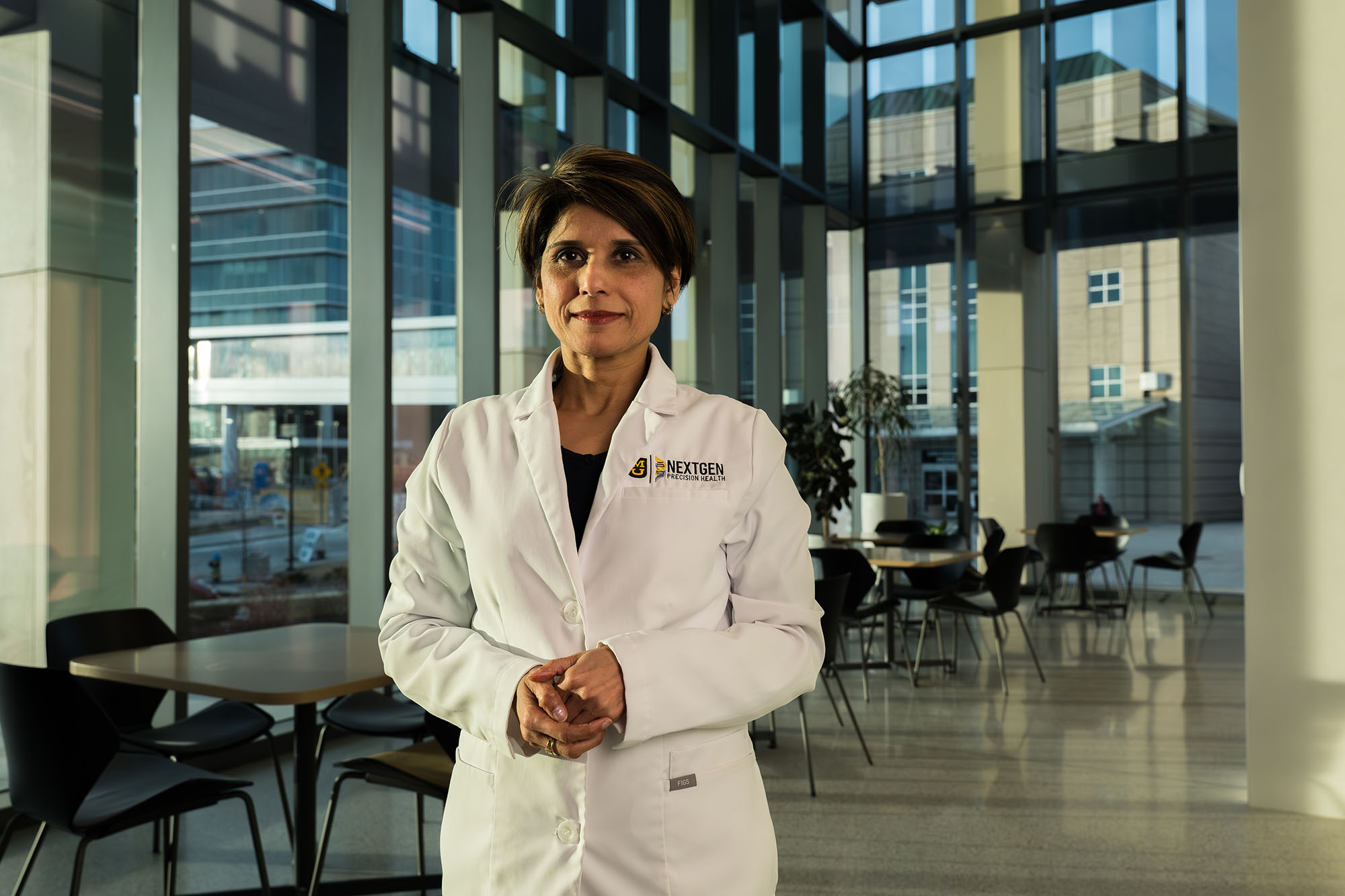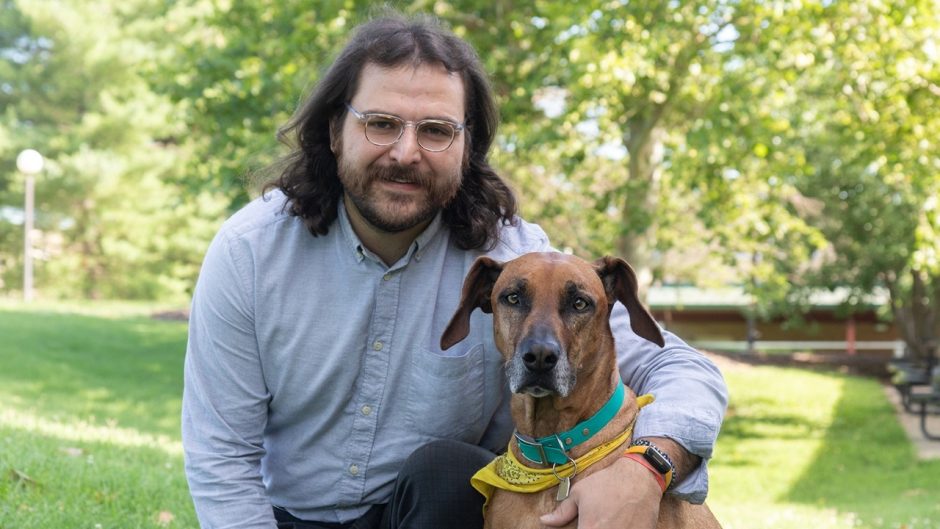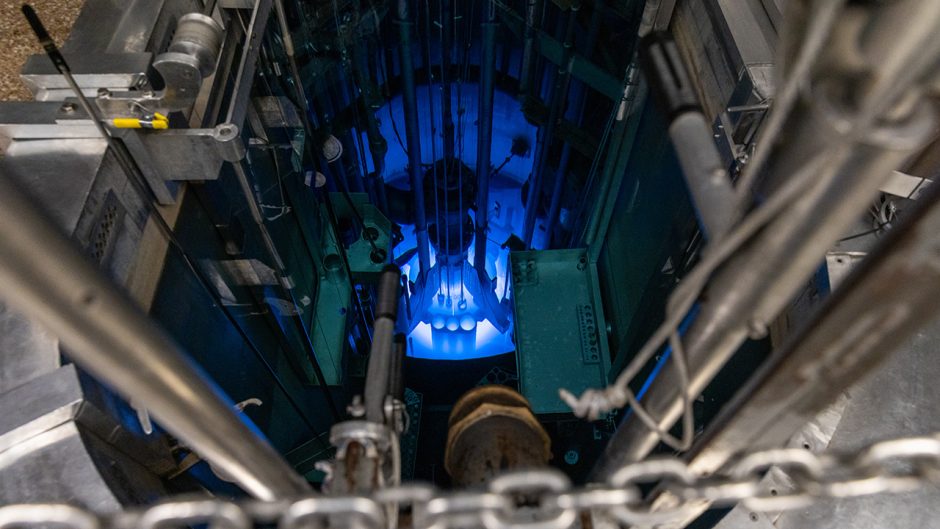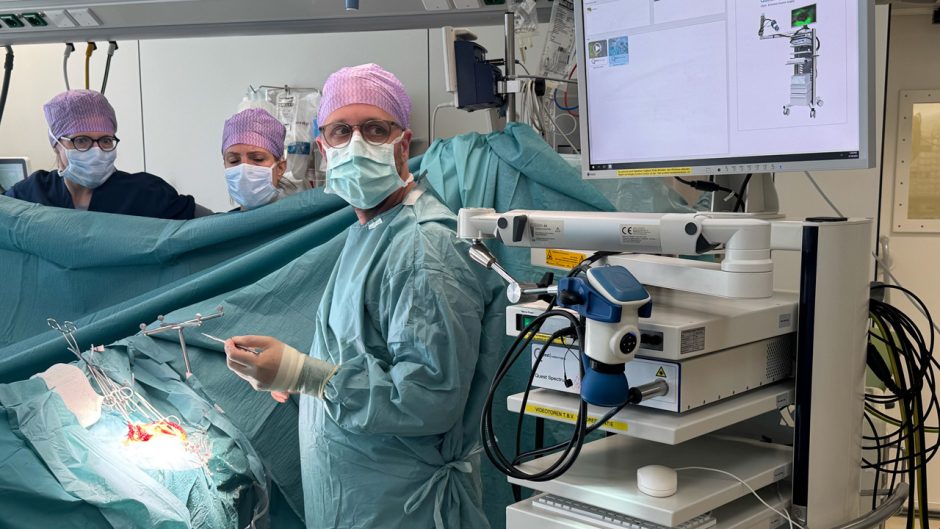
March 5, 2024
Contact: Courtney Perrett, 573-825-0769, cperrett@missouri.edu
Photo by Ben Stewart
As a child, Smita Saxena was fascinated by electrical circuits. In her spare time, she would open the backs of electrical gadgets that lay around the house to study how they worked. Today, fueled in part by her childhood curiosity, Saxena studies neuronal circuits inside the human brain as an established neuroscientist at the University of Missouri.
Saxena joined MU’s NextGen Precision Health team in early December 2023, relocating from Switzerland where she had worked in the Department of Neurology and Department for Biomedical Research at the University of Bern. Her neuroscience lab, which will be on the fourth floor of the NextGen building, will start research on fighting neurodegenerative diseases in late February.
Published widely in prestigious journals such as Neuron and Nature Neuroscience, Saxena’s research focuses on understanding the innermost workings of diseases such as Amyotrophic Lateral Sclerosis, Spinocerebellar ataxias and dementia. Scientists know relatively little about these diseases, which start in the brain and can be affected by several factors.
“We know that neurodegenerative disease is increasing because people are living to be older,” Saxena said. “The burden for diseases like dementia is high. There’s a genetic component, a susceptibility component, a person’s lifestyle and environment, which are all factors that influence how neurodegeneration functions. It’s important to me to get to the bottom of these conditions to improve people’s lives and, one day, be able to cure these diseases altogether.”
The weakest link
One of Saxena and her team’s most proud breakthroughs was the conceptualization of a hypothesis that she terms “the weakest link,” a reference to the British gameshow where at the end of each round of general knowledge questions, the players vote one contestant out for the fewest correct answers. In the world of neuroscience, Saxena is referring to the neurons that make up neuronal circuits — the building blocks in the brain that activate functions in the body.
The theory of the weakest link is that, within a neuronal network, all neurons work together in harmony. But when disease infiltrates the network, its neurons are affected differently. The fate of the neurons that are weakest is determined by the stronger neurons adapt and survive, ultimately leading to the demise of the weakest neurons within a circuit.
This discovery is significant because it helps scientists pinpoint where neurodegenerative diseases cause dysfunction in otherwise healthy circuits, Saxena explained.
“This concept is a game changer because it opens up avenues for therapeutics and brings a fresh perspective to the field in terms of thinking not just at the single-cell level, but at the circuit level,” she said. “When we understand which cells are vulnerable, then it becomes easier to refine treatments for a specific disease.”
Since joining the team at NextGen Precision Health, Saxena plans to move much of her research into the realm of translational medicine, fostering future clinical trials.
“I am so impressed by the state-of-the-art facilities at NextGen,” Saxena said. “I decided to come to Mizzou because I saw an opportunity to use my research to create real change for Missourians. NextGen already has patients who are willing to participate in clinical trials, which allows me to focus on my research and start making a difference for patients even sooner. Mizzou is the best place to connect research with the patients, whose lives it could revolutionize.”
Eyes on the future
When it opens this month, Saxena will join a team of neuroscientists at NextGen who are collaborating to push the frontiers of biomedical knowledge as it relates to neurodegenerative disorders — a string of conditions that are often relatively incurable and affect millions of Americans each year.
“We are actively recruiting researchers in the areas neurodegeneration, genetic or neurodevelopmental disorders, and neurotraumatic conditions,” said David Arnold, the executive director of the NextGen Precision Health initiative. “Dr. Saxena is a world-class neuroscientist and proven leader in the field of neurodegeneration who will help catalyze major discoveries.”
Saxena’s lab has a number of projects lined up already. The first focuses on deriving neurons from human patient skin fibers in a lab setting. This technique is helpful for scientists who can isolate the relevant disease signatures while conserving patient-specific functional changes — an advance that can help physicians successfully diagnose and stage diseases.
The brain is a challenging body part to treat with therapeutics due to the blood-brain barrier, a semi-permeable membrane between the blood and the brain. Thus, her lab has a strong interest in the development of nano lipids that can carry the drug across the blood-brain barrier and deliver them within precise regions of the brain. Saxena’s lab is also working to understand the crosstalk between microglia — immune cells in the brain and spinal cord, and their contribution to causing neuroinflammation, a crucial determinant for neurodegeneration.
“I’m excited about the possibilities at Mizzou,” Saxena said. “With world-class facilities and collaborators, the progress we could make on understanding and creating effective therapeutics for diseases that pose a barrier to people growing old is a dream.”


![062625_CEI Aerial View_email-cropped[29] (1)](https://showme.missouri.edu/wp-content/uploads/2025/06/062625_CEI-Aerial-View_email-cropped29-1-940x529.jpg)

